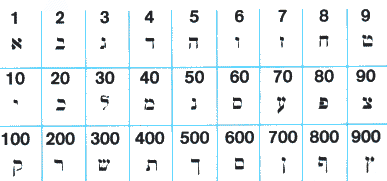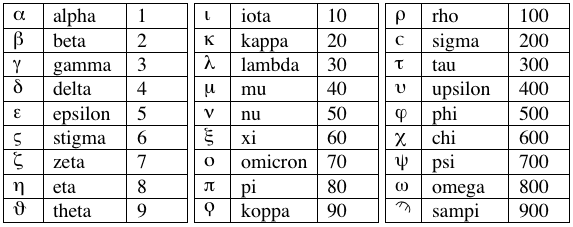



(i) A branch of mathematics usually concerned with the four operations
(adding, subtracting, multiplication and division) of positive numbers
(ii) The branch of pure mathematics dealing with the theory of numerical
calculations
(iii) Arithmetic or arithmetics (from the Greek word for "number") in
common usage is a branch of (or the forerunner of) mathematics which records
elementary properties of certain operations on numerals, though in usage by
professional mathematicians, it often is treated as synonym for number theory.
Numbers are Energy.
Its reflection are Letters.
Example: The Number "1" has a reflection of : "Aleph" or "Alpha" or "A".
One constructs matter from numbers, by the addition of numbers to be reflected as Letters (matter).
That is, "Matter" is the combination (addition) of letters, known as "words".
(i) Addition
(ii) Subtraction
(iii) Division
Multiplication is defined as the production of anything
from the combination of two items.
Proof
Example: Man + Woman = Child.
Therefore, multiplication is a form of addition.
Multiplication is the transformation or Creation
of a new substance from the addition of two items.
As stated in the example above: Man + Woman = Child.
The Child is not the original man or the original
woman, but a new substance/entity or product.
In Arithmetic, numbers cannot be put through the operation of multiplication,
because you can only combine matter to produce a new substance,
which IS the multiplication (product).
Addition is the combination of two or more LIKE items.
If it is not the same, under the same label, it is not a valid operation in
Arithmetic known as "addition", but "multiplication"
Examples:
(i) 10 RED apples + 10 RED apples = 20 RED apples.
(ii) 10 RED apples + 10 GREEN apples = 10 RED apples, 10 GREEN apples NOT 20 apples.
Division is the sharing of anything among anything.
Arithmetic deals with positive integers only.
Subtraction is the removal of a positive integer from another positive integer.
If it does not exist in physical space, that is, if it CANNOT EXIST (unlike thought that is brought into physical existence)
it's practical value to science diminishes.
When a number is applied to any physical object (that is, that object exists in physical space.),
the result of the subtraction can only be positive, that is, the object CANNOT VANISH/DISAPPEAR,
into "a negative object," this is why a negative result cannot exist in arithmetic.
The idea that a "negative number" exists cannot be proven (to exist) in physical space.
Example:
5 apples - 2 apples = 3 apples.
That is:
5 apples ( positive number) - (take away) 2 apples ( positive number) = 3 apples ( positive number)
The idea of 3 apples - 7 apples = (-4) apples is unfounded, because "-4 apples" is not real, that is,
"(-4) apples" does not exist in physical space.
Arithmetic is a Precise Science, that employs the manipulation of numbers.
|
|
| Site hosted for free by Kinghost.com |